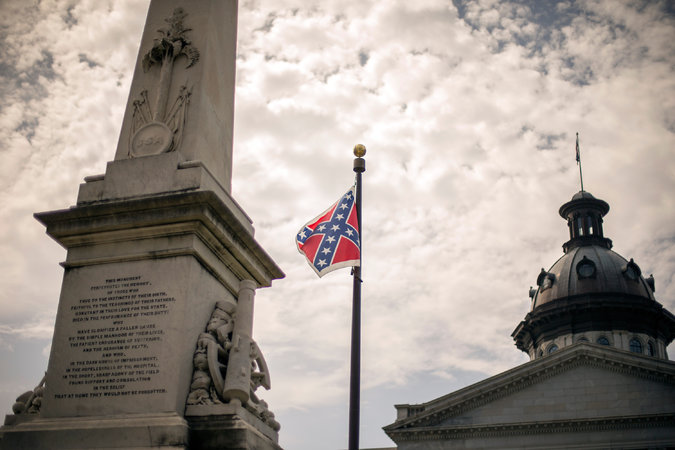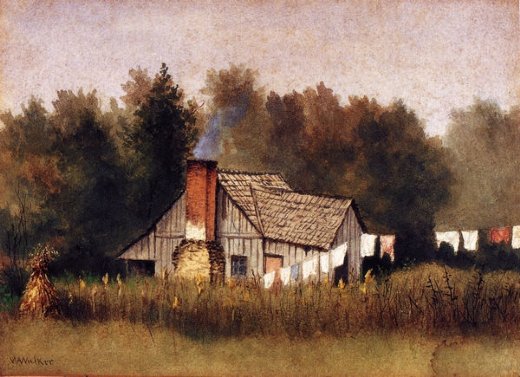Institutionalized Hate and Fear
A student at Framingham State University (FSU), located 20 miles outside of Boston, was “traumatized” when a Confederate flag sticker was seen on another student’s laptop computer. This “bias incident” was quickly reported to FSU’s “Bias Protocol and Response Team” (BP&RT) who quickly responded to the complaint. FSU’s “chief diversity and inclusion officer,” Sean Huddleston, responded with a mass email to the student population, explaining the details of the incident and strongly suggested that those impacted by the incident seek counselling. The BP&TR, said Huddleston, “will meet to determine any measures that may be needed to respond to this incident. Our primary goal continues to be to expeditiously address and resolve incidents that impede progress towards a welcoming and inclusive campus community.” (Source: Metro West Daily News, Framingham, MA, 23 November 2015)
The irony of his position was apparently lost on Huddleston and other campus diversity enforcers. Some students, it is fair to say, are to be more welcomed than others.
The traumatization of the “offending” student resulting from this hysteria is unlikely to be addressed. Rather, we expect this individual to receive mandatory diversity and sensitivity training followed by a public apology and confession of his crimes before being expelled. Unwelcomed, unwanted, a persona non grata, this young student is but one causality of the hatred and intolerance characteristic of this disorder that is spreading at an alarming speed.
Cases like this are occurring all over the country – in schools, clubs, churches, cities, towns, states, and even at the federal level. A day does not go by without some new threat against persons, places, or things deemed “Confederate” or “Neo-Confederate.”
What is Confederaphobia?
Confederaphobia is characterized by an irrational and pathological hatred and fear of all things Confederate – flags, monuments, graves, portraits, trinkets, stickers, etc. – anything that could be associated, even if tenuously, with the late Confederate States of America, including, in many cases, the region from which it sprang – the South, or Dixie – and those people and groups of people who are native or sympathetic to this region.
While confederaphobia has long existed, it has been more or less manageable and – except in rare cases – did not openly target individuals and groups deemed undesirable or, ironically, in their language, “hateful,” until the great Confederate Battle Flag purge that began in Columbia, South Carolina, this past summer. It has arisen from a small, rather localized hysteria to a national enormity.
What Causes Confederaphobia?
In a society where confederaphobia is considered normal and even virtuous, anti-Confederate attitudes flourish, thus creating a hostile and unwelcoming environment for native Southerners, especially if they refuse to renounce their Confederate heritage or abandon their outward Southern peculiarities – their accent and their manners, for example. Copperheads and right-thinking Yankees can also be affected. It is not necessary for one to actually tote a “rebel” flag or whistle “Dixie” for one to be bullied, ridiculed, or even targeted for violence – just the perception of Confederate tendencies is enough for becoming a target of confederaphobes.
Sadly, this irrational fear is often caused by ignorance and/or arrogance, not pathology. Because this attitude is sanctioned by the educational establishment and reinforced in the mainstream media, many are convinced that they are sufficiently “educated” on matters related to the South and its history and, thus, are immune to the effect of any evidence or argument that runs counter to their ideological understanding of Dixie. Any evidence or argument is placed conveniently under the category of “Lost Cause Mythology” and “Neo-Confederate Revisionism.” Once labelled thus by establishment “authorities,” there is no need to consider the matter any further – no alternative interpretation is acceptable, no evidence that contradicts establishment dogma counts.
In this confederaphobic society, countless Confederates and their descendants suffer in silence, as do Copperheads and right-thinking Yankees, neither of whom are immune from being bullied by confederaphobes.
Most victims are afraid to admit to themselves – and to others – who they are and where they come from. They feel ashamed, guilty, and all alone.
Victim of confederaphobia?
If you are a victim of confederaphobia, we can tell you with absolute certainty that you’re not alone. According to some estimates, 80 to 100 million Americans are descended from Confederate soldiers. With the population of the US approaching 320 million, this would make 25%, or 1 in 4, genetically linked to the old Confederacy. Most people outside of the South are probably unaware of this “taint” and many inside the South know, but have been taught to suppress their natural affections and normal tendencies.
For most people it takes time to come to understand who you are and where you come from. It’s okay to be confused, or to be uncertain about whether (or how) you should come out and live openly as a proud Southerner; to be who and what you are; to stand tall without apology or shame for your legitimate and praiseworthy history, heritage, and culture.
Education will be a vital part of your recovery as you move from victim to victor. There are many lies your teachers told you, many falsehoods that need to be address. As you become more versed in the true history of the South, your confidence will increase and your fear will decrease. There are many Southern-friendly resources and organisations out there that can help you along.
Remember
There is nothing wrong with you. What you are feeling is normal and natural.







